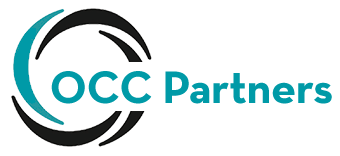20 Interview Questions You Need to Ask an Employer
 You’ve got your first interview coming up with the manager and you’ve prepared how to answer all the questions including why you’re looking for a new role. But have you thought about what questions you should ask?
You’ve got your first interview coming up with the manager and you’ve prepared how to answer all the questions including why you’re looking for a new role. But have you thought about what questions you should ask?
This is the first time you should be asking specific questions to find out more details about the company, the culture, your future manager, peers you’ll be working with, and future growth opportunities.
It’s a good idea to start with general questions and then move on to more specific questions.
About the Company
- Ask about the company’s short and long-term goals. What are major initiatives this year and what are the long-term plans?
- Inquire out about the culture. While most companies declare they have a positive work environment, what does that really mean? Ask the interviewer what their experience has been and what they value most at the company. Ask what they’d like the company to improve? Is it corporate sponsored events, community giving, or perhaps more frequent internal or executive communication. It doesn’t matter what the answer is, but it can provide valuable information for you.
Position Specifics
This can be tricky because candidates often ask general questions like, what are the job expectations, or how do you define success? And, the answers often don’t provide useful information. Be specific.
- How would your time be allocated on a ‘typical’ day?
- What are the challenges that you’re going to face? In the first 90 days? And the first year?
- What’s the structure of the team and how long have people on the team been at the company and in their roles?
- What obstacles may arise? And where will the resources be to overcome them?
- What metrics do they use to determine success in the role?
- How frequently will your manager meet with you? Daily, weekly, or bi-weekly?
- What’s your manager’s management style? Are they a hands-off manager or a micromanager?
- Request a meeting with your peers on the team. It’s a great opportunity to get a good feel for what you’re getting into. What were the department’s biggest challenges last year and how did they solve them?
Salary and Compensation
 Salary and compensation conversations should be kept general in the beginning of your meetings. Likely the recruiter will ask your salary, or salary range, and you can provide them current salary, desired compensation, or a range. However, if you provide a range, keep the range within $5-$7K, because whatever range you state, the employer hears the lowest number, while you’re thinking the highest end of the range. This disparity can result in an offer that disappoints.
Salary and compensation conversations should be kept general in the beginning of your meetings. Likely the recruiter will ask your salary, or salary range, and you can provide them current salary, desired compensation, or a range. However, if you provide a range, keep the range within $5-$7K, because whatever range you state, the employer hears the lowest number, while you’re thinking the highest end of the range. This disparity can result in an offer that disappoints.
In meetings with the actual hiring manager, salary and compensation questions you initiate should be kept to a minimum.
- You may want to ask for confirmation your salary is in the range of what the company has allocated for the job.
- You can ask for an overview of the company benefit plans. Some companies won’t provide specifics until the end, but many will provide you a summary of their overall benefits.
- Ask when detailed benefit information will be available.
- Ask about perks the company regularly provides, like matching contributions to charities, educational reimbursement, free beverages, casual work environment, work from home days, etc.
Training and Future Opportunities
- Inquire about any early training.
- Ask if there’s a senior resource available for questions or if they have a formal mentoring program? It’s always a benefit to have a mentor, so if it’s not offered, find one within the company as soon as possible. It can be an employee in another department, but your mentor should have more tenure and seniority to be the most useful.
- What are the future training opportunities, from web training to conferences and onsite training?
- Ask about growth opportunities? What’s been typical in the department?
- What was the manager’s trajectory in the company and have they promoted any team members?
- Ask about opportunities to transition to other departments and the flexibility to do so if it’s good for your long-term career growth at the company and an opportunity presents itself. What are the limitations?
 It’s important to have some knowledge of the individual you’re meeting, as well as the organization before you ask any or all questions. If you’re interviewing at a start-up, growth opportunities, training and mentoring may not be clearly outlined. However, if it’s a small start-up you’re interested in, it’s important to understand your manager’s philosophy to promoting people, and in the end, you’ll likely need to be more open to taking a risk. Well established companies often have formal development and/or training programs, so you’re likely to get more concrete information.
It’s important to have some knowledge of the individual you’re meeting, as well as the organization before you ask any or all questions. If you’re interviewing at a start-up, growth opportunities, training and mentoring may not be clearly outlined. However, if it’s a small start-up you’re interested in, it’s important to understand your manager’s philosophy to promoting people, and in the end, you’ll likely need to be more open to taking a risk. Well established companies often have formal development and/or training programs, so you’re likely to get more concrete information.
It doesn’t matter how much you want the job, it is critical you get as much information and your questions answered, so you can make an informed decision if you get an offer. There’s nothing worse than accepting an offer and learning later, you should have asked more questions and now you’re committed to a job you don’t like.
In the end, stay positive throughout your conversations with the company. There will be times when it’s appropriate to ask certain specific questions, and other times when you’ll have to keep questions more general. And you need to be sensitive to the interviewer’s interest in answering questions. Don’t ask too many questions at once. There’s nothing worse than a candidate who drills the interviewer with multiple questions when the interviewer isn’t convinced they’re a strong candidate. It confirms to the interviewer that the candidate has little awareness of how the interview is going or doesn’t know that timing of questions is critical.
Click here for more information on OCC Clinicians current opportunities.



 Seek out a couple sources for advice, friends who have interviewed recently, and website blogs. On the internet, research topics like ‘interviewing advice’ or ‘interview questions’. Spend time reviewing the information you discover before you begin your preparation. Your preparation before the interview will make a huge impact on how well you do at the interview.
Seek out a couple sources for advice, friends who have interviewed recently, and website blogs. On the internet, research topics like ‘interviewing advice’ or ‘interview questions’. Spend time reviewing the information you discover before you begin your preparation. Your preparation before the interview will make a huge impact on how well you do at the interview. Answer this question with a strong, specific response. Your response will reveal your motivations and it can make or break the rest of your interview. Telling a personal story is the best way, but be authentic.
Answer this question with a strong, specific response. Your response will reveal your motivations and it can make or break the rest of your interview. Telling a personal story is the best way, but be authentic. This is a challenging question for many to answer. Should you tell your current salary, should you say what you’re hoping to get? Or, should you respond that you’re open to ‘market’ compensation?
This is a challenging question for many to answer. Should you tell your current salary, should you say what you’re hoping to get? Or, should you respond that you’re open to ‘market’ compensation? Since you know ahead of time that there will likely be difficult questions, your best action is to prepare for them ahead of time. While you’ll never know exactly which questions you’re going to be asked, our recommendation is to prepare three to four stories of challenging experiences you’ve had and the action you took to resolve a problem and what you learned from the experience. While this won’t arm you to answer any question, it will generally help you answer many of them. As you prepare your responses ahead of time, write down your examples, review them, edit until they’re succinct. Then review them with a family member or friend and listen for any possible changes you should make, or any additional information you should be including.
Since you know ahead of time that there will likely be difficult questions, your best action is to prepare for them ahead of time. While you’ll never know exactly which questions you’re going to be asked, our recommendation is to prepare three to four stories of challenging experiences you’ve had and the action you took to resolve a problem and what you learned from the experience. While this won’t arm you to answer any question, it will generally help you answer many of them. As you prepare your responses ahead of time, write down your examples, review them, edit until they’re succinct. Then review them with a family member or friend and listen for any possible changes you should make, or any additional information you should be including.